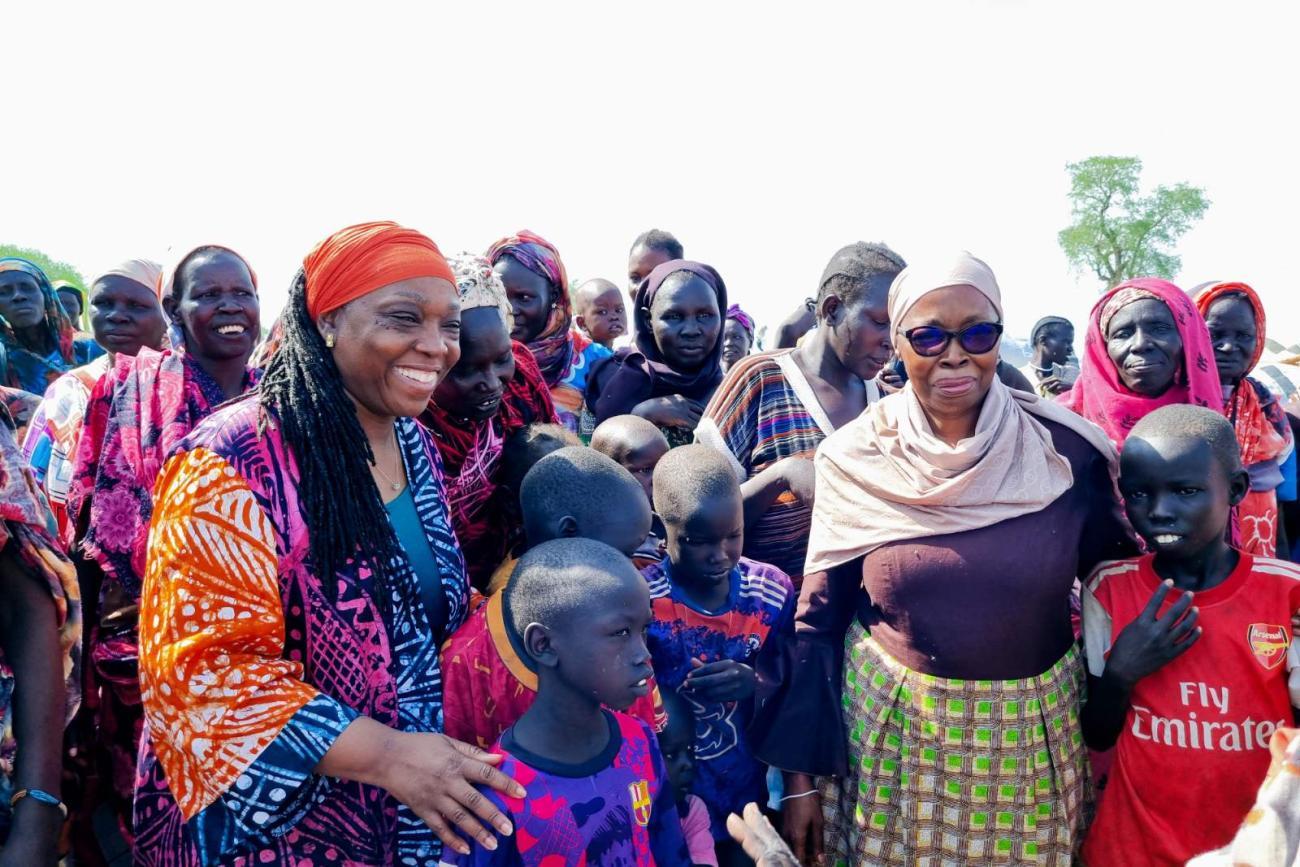One UN in action: Cross-border collaboration to build sustainable peace in Abyei

“Delivering as One” has long been an integral part of the UN development system’s strategy to enhance coherence, efficiency and effectiveness at the country level. But what if this could be done not just within countries, but also across borders?
In response to the UN Secretary-General’s request for a joint programme for Abyei (Security Council Resolution 2609 in December 2021) we established an informal coordination structure which brought together our two Resident Coordinator Offices with UN agencies and the UN Interim Security Force for Abyei (UNISFA: the peacekeeping mission in Abyei). Abyei is a politically disputed Administrative Area between Sudan and South Sudan. The political context in which the UN and partners are operating make collaboration extremely challenging, given that mobility across the region and access to certain communities is restricted.
As part of our cross-border efforts to overcome these challenges, we conducted a joint visit to Abyei in June this year to help us better understand how UN Country Teams can support vulnerable people and deliver a collective response across the “Abyei Box”.
Severe poverty reinforces fault lines and drives conflict between communities in Abyei; something we witnessed first-hand during our visit. Community members told us that what they urgently need is water and sanitation; healthcare; and protection. As well as speaking with community members, we also met with national authorities to help gain support and build trust, as well as with civil society members from the Misseriya and Ngok Dinka areas; the former a largely pastoralist, and the latter a predominately farming community.
Despite their grievances, we learnt that the two communities require support to access the same basic services. Our meetings helped us understand how to build development projects that would bring together both communities around shared interests, and, by extension support peaceful co-existence.
One of the outcomes of the visit was the so-called “mobile interventions” –including clinics and schools – which enable us to serve the needs of both communities without building infrastructure that might encourage settlement in a specific area. Responding to what we heard from the people we met on the ground, we are now planning to work in areas where the two communities regularly meet –including the Amiet market.
Operating jointly in a political and social environment as complex as Abyei’s is a major challenge, but it is one that is achievable with strong coordination and regional support.
This challenge is not unique to Abyei. Tensions between agricultural and nomadic communities are prevalent across Africa, and they often spill across borders, making collaboration across countries increasingly important, as well as finding solutions that are rooted in integrated humanitarian, development and peace approaches.
As Resident Coordinators we hope that the impact of our holistic efforts to improve the lives of people in Abyei will continue to yield results. We have already experienced the benefits of our decision to work as one cross-border unit, pooling resources from both UN country teams, UNISFA and the Department of Political and Peacebuilding Affairs (DPPA). Let’s continue to jointly move the needle on what it means to deliver as One UN.
Background on Abyei
Straddled by Sudan and South Sudan, the politically disputed Abyei Administrative Area is no stranger to violence. Claimed by both governments, its undefined political status in the 2005 Comprehensive Peace Agreement (CPA) and South Sudan’s referendum for independence in 2011 has created a highly politicized environment where rule of law has been absent beyond customary law and inter-communal conflict is rife.
There has been a lack of incentives between both governments to invest in much-needed basic infrastructure, which has created a dire humanitarian situation: IDP sites are overburdened, food production is inadequate, water is scarce, and 70 percent of children are not in school.
Abyei is also contested on inter-communal grounds. Longstanding territorial disputes, primarily between the agro-pastoralist Misseriya and southern-inhabiting Ngok Dinka communities, frequently erupt into armed attacks, gender-based violence incidents and child abduction. Clashes in February this year displaced over 70,000 people, exacerbating the extant humanitarian crisis.
There is a large international presence working to address needs on the ground, which includes NGOs, UN entities from the respective country teams, and the United Nations Interim Security Force for Abyei (UNISFA), which was deployed in 2011 to protect civilians and facilitate the delivery of humanitarian aid.
This blog was written by Deputy Special Representative of the Secretary-General, Resident and Humanitarian Coordinator, Sudan, Khardiata Lo N’Diaye, and Deputy Special Representative of the Secretary-General, Resident and Humanitarian Coordinator, South Sudan, Sara Nyanti.
Editorial support from DCO. To learn more about UN in Sudan and South Sudan, please, visit Sudan.un.org and Southsudan.un.org













